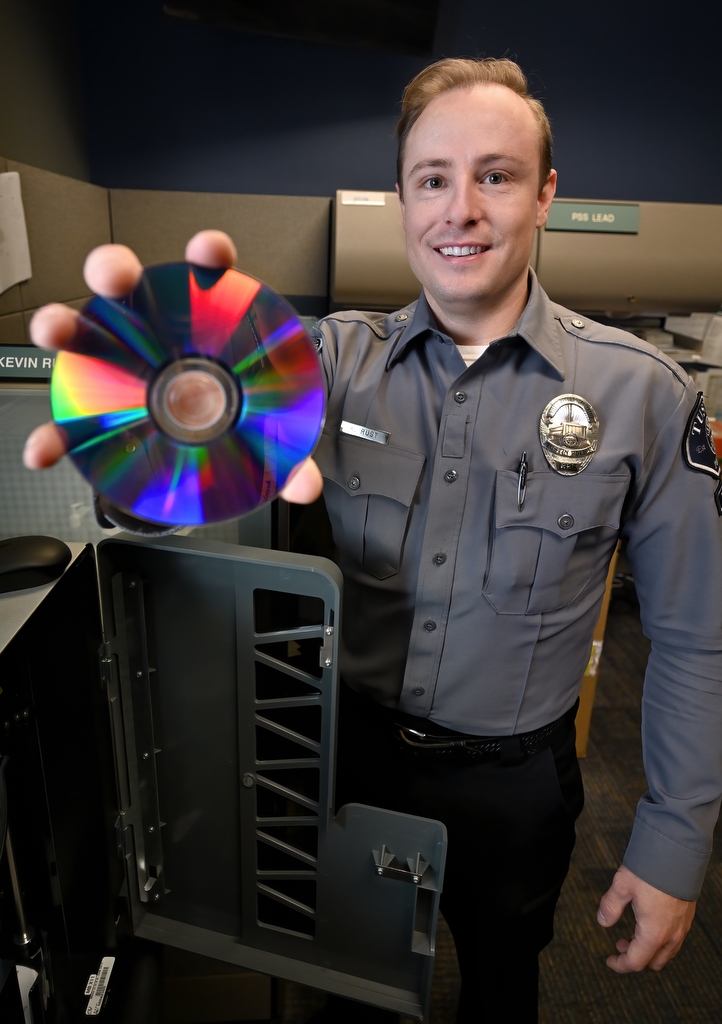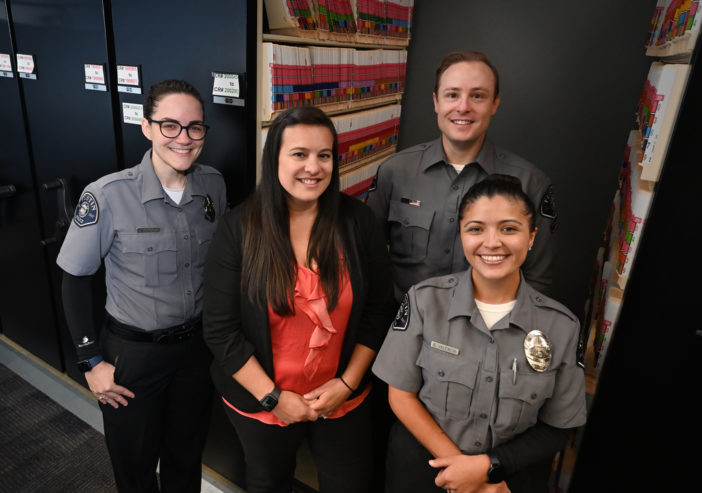On any given day, the Records Unit at the Tustin Police Department, which is open 24/7, fields everything from routine records requests to the ridiculous, like when someone came in after the front desk had closed and wanted to know what to do about an injured owl.
Why the person thought the Records Unit would be able to handle it is anyone’s guess. But to those in the unit, it’s all in a day’s work. They contacted Animal Control and the issue was soon settled.
Information is what the Records Unit is all about. The job may not seem glamorous, but it is essential to the smooth running of the police department.
According to the Tustin Police Department website, the Records Unit is “integral,” working with detectives, dispatch, patrol and police services officers, and property and evidence technicians.
And that’s just on the police side.
The Records Unit is also a main resource for the public, fielding public records requests and finding all manner of information, including where to send an injured owl.

Records Supervisor Connie Attard talks about the employees in her department.
Photo by Steven Georges/Behind the Badge
Records Supervisor Connie Attard oversees a staff of 12 and has been with the unit since 2013, working at every level until taking the lead spot in January.
Attard says she is never sure from one day to the next what will come across her desk.
“Multi-taking is huge here,” she said. “It’s one of the biggest things we do and one of the hardest to learn.”
Attard and her unit are also at the heart of the department’s effort to digitize information and move away from paper.
Throughout the office, boxes of paper are stacked waist high, each one containing 10 reams of paper, or 5,000 pages. Attard estimates that every couple of weeks, her department orders 10 more boxes.
“If you like paper and boxes, this is your place,” she joked.
The department’s file shelves hold about 28,000 files of various thicknesses.
The Records Unit is responsible for processing and filing police reports, criminal investigations, field interview cards, and discovery subpoenas for court cases. The Unit is also responsible for fingerprinting and storing booking photos.
The staff, along with a group of four or five volunteers, is also continually converting paper files into electronic versions.
Helping the public and media
The Records Unit is No. 2 on the phone tree to the police department and get all the overflow calls from dispatch, as well as calls from the public and the media on records requests.
Kevin Rust has been in the unit for three years and is one of two Records Leads.
One of the critical parts of the job, he said, is fielding calls from residents for public records and culling what can be released and what parts of records cannot be included.
“We’re interpreting government codes and what is public and what isn’t. A lot has to be sent to the city attorney,” Rust said, adding that the unit is responsible for redactions.
Sometimes, the staff have to put on their investigative hats. This is particularly true when releasing sensitive information, such as in domestic violence records.
“We want to release what we can and protect what we should,” Rust said.

Records Lead Kevin Rust in front of a batch DVD burner that records police body camera videos for archiving.
Photo by Steven Georges/Behind the Badge
One the most challenging times for the Records Unit came in 2018, in the wake of the passage of SB-1421, or Peace Officers: Release of Records. The bill made accessible police records relating to officer use-of-force incidents, sexual assaults, and acts of dishonesty.
“On January 1 (2019) at midnight, we got calls from every news agency you can imagine,” Attard said.
Six months later, when the release of officers’ body camera footage was made public, Attard said her department had to add a clerk just to handle those requests.
“It was definitely a huge change,” she said.
Rust and Attard both say there is a lot of confusion in the public about what is and isn’t public information. There are times when requests are refused and explaining the rejection of requests can be taxing.
“It takes a lot of composure,” Rust said.
The records unit also gets pulled in other directions, including for specialty assignments such as assisting the Gang Unit, the Professional Standards Division, and General Investigations.
When not attending to all these things, the Records Unit is also responsible for ordering and storing the department’s personal protective equipment during the COVID-19 pandemic.
“Thankfully, I have a good group that’s really productive,” Attard said.
 Behind the Badge
Behind the Badge



